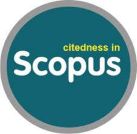Validity of Internship Program Instrument in Primary School Teaching College, Timor-Leste
Abstract
This study aims to test the validity of the construct of the assessment instrument of the internship program for pre-service elementary teachers at the Instituto Católico para a Formação de Professores (ICFP), Baucau, Timor-Leste, using the Confirmatory Factor Analysis (CFA) approach. The initial instrument consists of 40 items covering seven primary constructs: Teaching Preparation, Introductory Presentation of Lessons, Lesson Explanation, Pedagogic Ability, Gender-Based Participation, Special Needs, Assessment During Lessons, and Lesson Closure. The data was obtained from the assessments conducted by supervisors and teachers on 350 Pre-service elementary teachers who participated in the internship program. The CFA analysis showed that the measurement model had a reasonable match rate, with Chi-square/df values < 2, p-value ≥ 0.05, RMSEA < 0.08, CFI ≥ 0.90, and SRMR ≤ 0.05. Of the initial 40 items, 32 were declared valid and significant in measuring the construct. The results of this study show that the internship assessment instrument has strong construct validity and can be used to assess pre-service elementary teachers effectively in the local context. This instrument can be a reference for developing and evaluating teaching practice programs in other teacher education institutions.
Keywords
Full Text:
PDFReferences
Abdelrahman, N., Irby, B. J., Lara-Alecio, R., & Tong, F. (2022). The influence of university principal preparation program policies on the program internship. SAGE Open, 12(3).
Anjum, S. (2020). Impact of internship programs on professional and personal development of business students: a case study from Pakistan. Future Business Journal, 6(2).
Dixson, D. D., & Worrell, F. C. (2016). Formative and summative assessment in the classroom. Theory into Practice, 55(2), 153–159.
Fitrizqi, S., & Susanto, H. (2021). Validitas Konstruk (CFA) dan Model Rasch Alat Ukur Regulasi Diri untuk Anak Usia 3-7 Tahun. PAUDIA: Jurnal Penelitian dalam Bidang Pendidikan Anak Usia Dini, 10(1), 159–178.
Furtasan Ali Yusuf, F., & Basrowi. (2023). The effectiveness of the internship program for vocational high school students using the CIPP method. JTP - Journal of Educational Technology, 25(1), 15–28.
Harrison, C. J., Könings, K. D., Schuwirth, L. W. T., Wass, V., & Van der Vleuten, C. P. M. (2017). Changing the culture of assessment: the dominance of the summative assessment paradigm. BMC Medical Education, 17(1), 73.
Hidayah, N., Parihin, & Ahmad. (2025). The validity of student interest instrument in learning Arabic using exploratory factor analysis. Journal of Practice Learning and Educational Development, 5(1), 104–113.
Hidayat, R., Idris, W. I. W., Qudratuddarsi, H., & Rahman, M. N. A. (2021). Validation of the mathematical modeling attitude scale for Malaysian mathematics teachers. Eurasia Journal of Mathematics, Science and Technology Education, 17(12), em2047.
Ismail, S. M., Rahul, D. R., Patra, I., & Rezvani, E. (2022). Formative vs. summative assessment: impacts on academic motivation, attitude toward learning, test anxiety, and self-regulation skill. Language Testing in Asia, 12(40), 1–23.
Katsikatsou, M., Moustaki, I., & Jamil, H. (2022). Pairwise likelihood estimation for confirmatory factor analysis models with categorical variables and data that are missing at random. British Journal of Mathematical and Statistical Psychology, 75(1), 23–45.
Lantu, D. C., Suharto, Y., Fachira, I., Permatasari, A., & Anggadwita, G. (2022). Experiential learning model: improving entrepreneurial values through internship program at start-ups. Higher Education, Skills and Work-Based Learning, 12(1), 107-125.
Moskotina, R. (2022). Construction of index based on the GSR-5 items using the graded response model. Sociology: Theory, Methods, Marketing, 3, 25–39.
Mubarrak, K. R., Ihsan, H., & Wyandini, D. Z. (2022). Development of math efficacy scale for junior high school student in Indonesia. Journal of Elements, 8(1), 276–289.
Norwalk, K. E., DiPerna, J. C., & Lei, P.-W. (2014). Confirmatory factor analysis of the Early Arithmetic, Reading, and Learning Indicators (EARLI). Journal of School Psychology, 52(1), 83–96.
Radde, H. A., Nurrahmah, N., Nurhikmah, N., & Saudi, A. N. A. (2021). Uji validitas konstrak dari emotion regulation questionnaire versi bahasa Indonesia dengan menggunakan confirmatory factor analysis. Jurnal Psikologi Karakter, 1(2), 152–160.
Rahayu, W., Putra, M. D. K., Rahmawati, Y., Hayat, B., & Koul, R. B. (2021). Validating an Indonesian version of the what is happening in this class? (wihic) questionnaire using a multidimensional Rasch model. International Journal of Instruction, 14(2), 919–934.
Shulman, L. (1987). Knowledge and teaching: Foundation of new reform. Harvard Educational Review, 57(1), 1–23.
Sideridis, G. D., Tsaousis, I., & Al-Sadaawi, A. (2019). An application of reliability estimation in longitudinal designs through modeling item-specific error variance. Educational and Psychological Measurement, 79(6), 1038–1063.
Sukmawati, D. (2022). Internship program effectiveness: a work readiness. Journal of Career and Entrepreneurship, 1(2), 11–23.
Tindowen, D. J., Bangi, J., & Parallag, C. (2019). Pre-service teachers' evaluation on their student internship program. International Journal of Learning, Teaching and Educational Research, 18(10), 279–291.
Van Huy, N., Thu, N. T. H., Anh, N. L. T., Au, N. T. H., Phuong, N. T., Cham, N. T., & Minh, P. D. (2020). The validation of organisational culture assessment instrument in healthcare setting: Results from a cross-sectional study in Vietnam. BMC Public Health, 20(1), 316.
Walker, B. L. (2012). The flat world and education: how America's commitment to equity will determine our future. Journal of Education Policy, 27(2), 275–276.
Wolinsky-Nahmias, Y., & Auerbach, A. H. (2022). Evaluating the design and benefits of internship programs. Journal of Political Science Education, 18(4), 584–604.
DOI: https://doi.org/10.17509/md.v21i1.88252
Refbacks
- There are currently no refbacks.
.png)
Universitas Pendidikan Indonesia, Purwakarta Campus
Jl. Veteran No. 8. Purkawarta
West Java, Indonesia
Email: metodikdidaktik@upi.edu


























